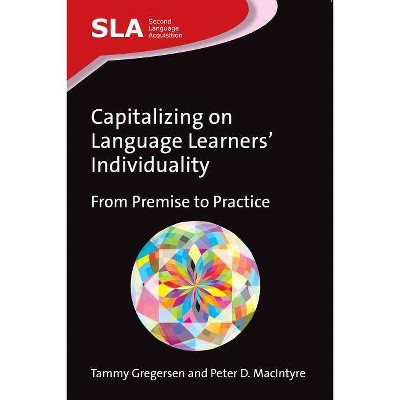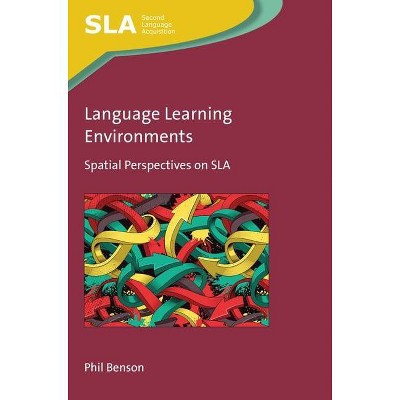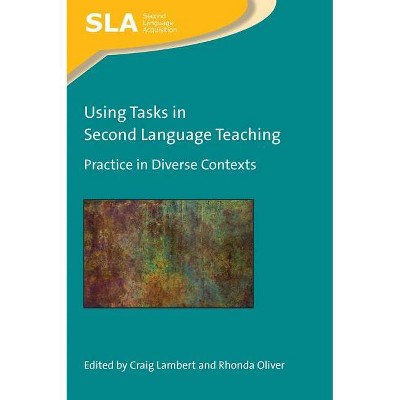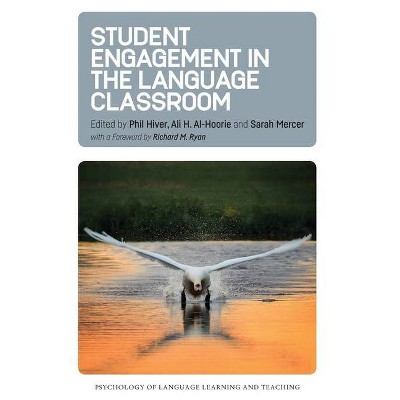Positive Psychology in SLA - (Second Language Acquisition) by Peter D MacIntyre & Tammy Gregersen & Sarah Mercer (Paperback)
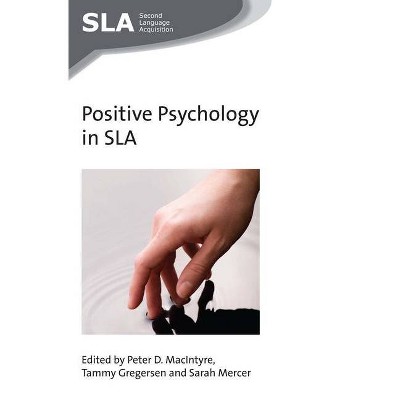
Similar Products
Products of same category from the store
AllProduct info
<p/><br></br><p><b> About the Book </b></p></br></br>This book explores theories in positive psychology and their implications for language teaching, learning and communication. Chapters examine the characteristics of individuals, contexts and relationships that facilitate learning and present several new teaching ideas to develop and support them.<p/><br></br><p><b> Book Synopsis </b></p></br></br>This book explores theories in positive psychology and their implications for language teaching, learning and communication. Chapters examine the characteristics of individuals, contexts and relationships that facilitate learning and present several new teaching ideas to develop and support them.<p/><br></br><p><b> Review Quotes </b></p></br></br><br><p>MacIntyre et al.'s edited volume is a thorough work on the application of positive psychological principles on applied linguistics and language learning endeavours. The theories reviewed, the data analysed and the practices presented, will certainly appeal to scholars, curriculum developers, language teaching practitioners, teachers' educators and pre-service language teachers. The volume is accessible and reads quite easily.</p>--Jose Ignacio Aguilar Río, Sorbonne Nouvelle-Paris 3 University, France "LINGUIST List: Vol-28-382, 2017"<br><br><p>With a decidedly positive outlook on applied linguistics stemming from positive psychology, this volume piques the interest of teachers and researchers alike by shedding light on language learning and empowerment, happiness, resilience, melody, stress reduction and enjoyment as well as success. No wonder that this book is a joy to read!</p>-- "Kata Csizér, Eötvös Loránd University, Hungary"<br><br><p>The book defends itself as a worthy source of knowledge on the theory, research and practice of positive psychology in specific areas of foreign language teaching and learning. I fully endorse and recommend the volume for its expertise and scholarly discipline on the one hand and for the excitement and creativity it encourages on the other.</p>--Danuta Gabryś-Barker University of Silesia, Poland "SSLLT 6 (3). 2016. 541-546"<br><br><p>This book is about the dynamics of happiness in language learning, the ripples that interact with other ripples, not necessarily in unison, but providing a goal and resources for processes of development. The contributions aim to show the positive sides of language teaching and learning without ignoring or denying the negative ones. They strive to reach a balance that allows for human agency to frame existences and hopes. The authors aim to move beyond the 'Don't worry, be happy' level by using carefully defined concepts and rigorous methodology.</p>-- "Kees de Bot, University of Groningen, Netherlands"<br><br><p>Second language learning is a new area for Positive Psychology and these authors have found that it is a surprising and remarkable aide.</p>-- "Martin Seligman, Director of the Penn Positive Psychology Center, University of Pennsylvania, USA and author of Flourish: A New Understanding of Happiness and Well-Being - and How To Achieve Them"<br><br><p>This volume offers a refreshing perspective on the process of learning and teaching new languages, highlighting the diverse ways in which learners and teachers draw on the many positive aspects of the human condition in their development as users of a non-native language. Without understating the difficulties that trouble language learning, this book provides a well-grounded basis for future studies using theoretical perspectives from positive psychology, and inspires teaching practices that recognize the human potential to thrive and grow.</p>-- "Kimberley A. Noels, University of Alberta, Canada"<br><p/><br></br><p><b> About the Author </b></p></br></br><p>Peter D. MacIntyre is Professor of Psychology at Cape Breton University, Canada. His research examines emotion, motivation and cognition across a variety of types of behavior, including interpersonal communication, public speaking and learning. </p> <p>Tammy Gregersen is Professor of TESOL at the University of Northern Iowa, USA. She studies emotion and affect as it relates to second language learning, methodology and nonverbal communication. </p> <p>Sarah Mercer is Professor of Foreign Language Teaching at the University of Graz, Austria. Her research interests include all aspects of the psychology surrounding the foreign language learning experience, focusing in particular on self.</p>
Price History
Price Archive shows prices from various stores, lets you see history and find the cheapest. There is no actual sale on the website. For all support, inquiry and suggestion messages communication@pricearchive.us
